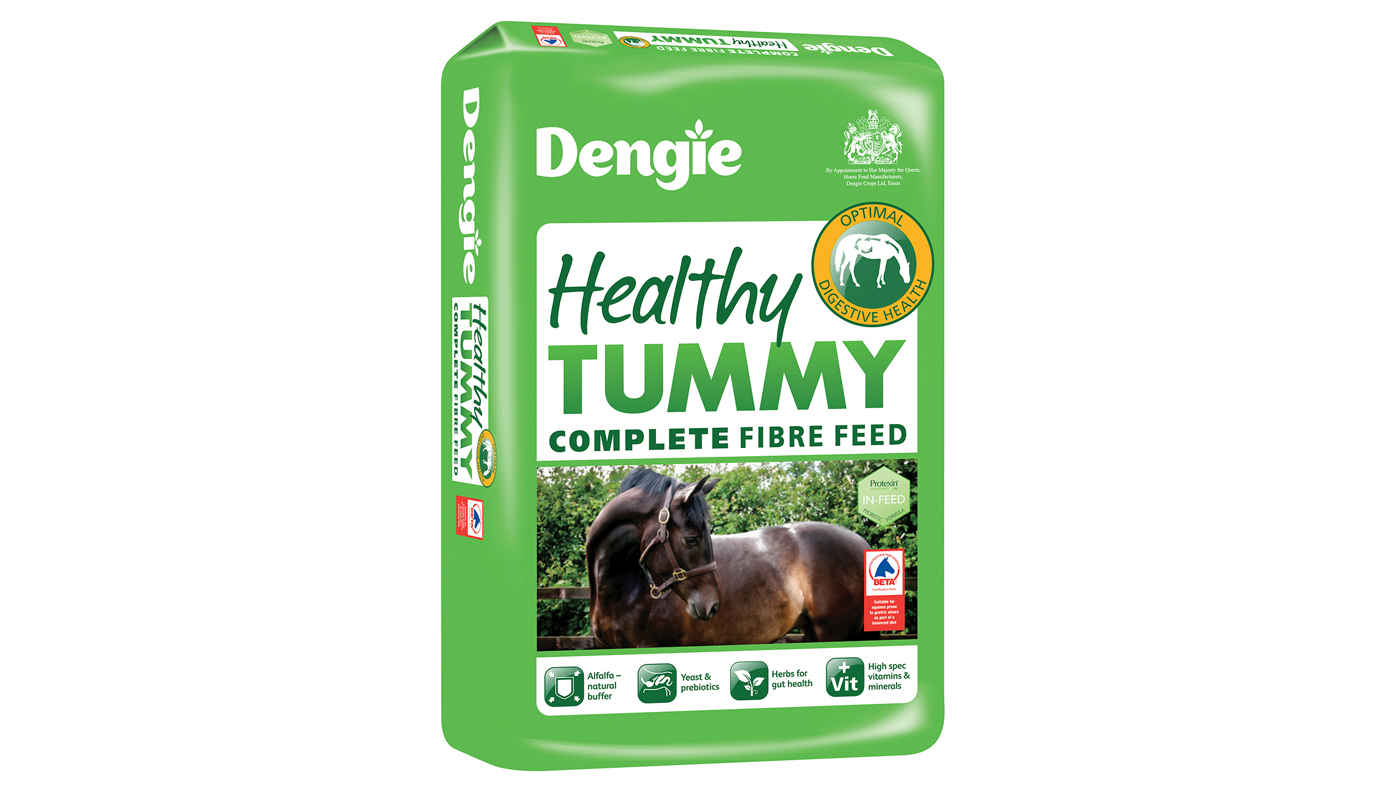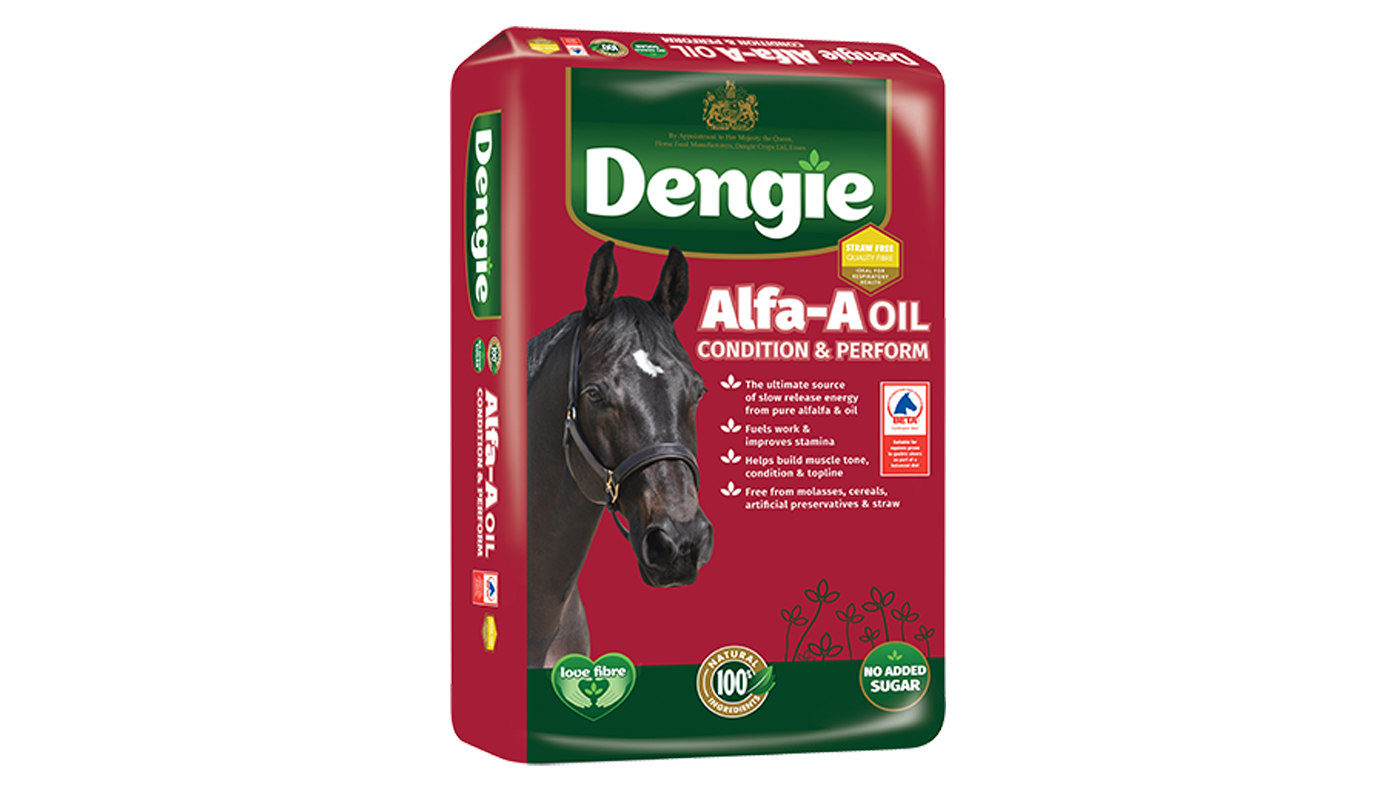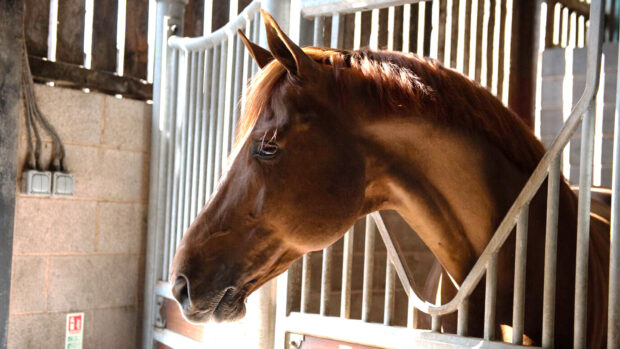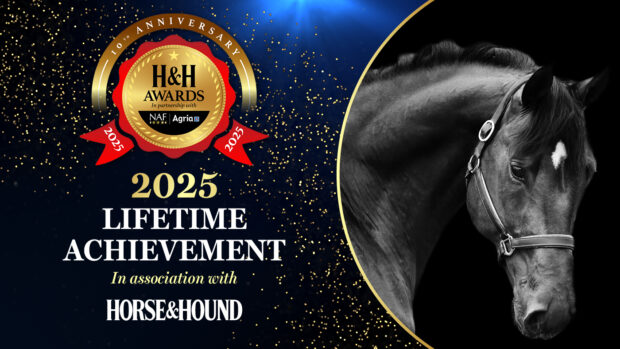Promotional Feature with Dengie
If your horse has Equine Gastric Ulcer Syndrome you’re probably aware of many of the strategies recommended to help manage the problem, but how many do you actually put into practice?
If your answer is not all of them, then you’re not alone! Our survey completed by 267 people, found some surprisingly low levels of implementation:
- 67% – Increased access to hay/fibre
- 62% – Avoided starch/cereals
- 57% – Increased turnout
- 56% – Fed a double handful of fibre/alfalfa shortly before riding
It can be difficult to increase turnout or feed more hay if your livery yard isn’t very obliging or your horse is already turned out 24/7. But it is surprising to see that not everyone is avoiding starch and cereals, which is generally much easier to do.
Why no cereals?
- Cereals contain starch which increases acidity in the stomach and the rest of the digestive system
- There is no need to use cereals for the vast majority of horses. The combination of high quality fibre and oil, such as in Dengie Healthy Tummy, provides the same amount of energy as cereal-based feeds but often with less than 10 times the amount of starch
- Beware cereal-based feeds that pretend to be high fibre and low starch – they are often still much higher in starch than chopped fibre feeds. Two popular cubes and mixes marketed for horses with ulcers contain three and four times more starch than Dengie Healthy Tummy for example
- Chopped fibre feeds such as Healthy Tummy have the added benefit of promoting increased chew time, which generates more saliva than mixes and cubes. Saliva is the horse’s natural way to buffer acidity in the stomach
Rainbow Equine Hospital Equine Vet, Mandy Platt, BVSc, MRCVS Cert AVP(EM) and Dengie Nutritionist, Katie Williams, M.Sc (Dist), RNutr provide some advice on the treatment and management of gastric ulcers.
If you want to do the best for your horse and remove cereals from their ration, why not consider one of the following Dengie feeds suitable for horses and ponies prone to EGUS?
Dengie Healthy Tummy is nutritionally balanced and is molasses and cereal free. It contains FOS prebiotics and yeast to promote gut health and a unique blend of herbs formulated specifically for this feed. It contains a medium level of energy and so would be ideal for horses in moderate work.
For horses in hard work or that need to gain weight, Dengie Alfa-A Oil is also suitable for horses and ponies prone to EGUS and is a high calorie feed comparable to a conditioning or competition mix with 10 times less starch than cereal-based feeds.
For fussy feeders, Dengie Performance Fibre combines grass with alfalfa and a high oil coating. The addition of spearmint oil and a light molasses coating creates a very palatable feed – ideal for tempting those with limited appetites.
 “Dengie Healthy Tummy fuels my horses performance, keeps their digestive systems in perfect condition and provides them with controlled energy. They all look the picture of health, I’m always receiving compliments on how well they look at trot-ups,” says Tanya Buckingham-Lloyd.
“Dengie Healthy Tummy fuels my horses performance, keeps their digestive systems in perfect condition and provides them with controlled energy. They all look the picture of health, I’m always receiving compliments on how well they look at trot-ups,” says Tanya Buckingham-Lloyd.
Dengie’s team of highly experienced and qualified nutritionists are here to answer your feeding queries. To help tailor the perfect diet for your ulcer prone horse or pony call 0845 345 5115* or complete our feed advice form for a personalised diet plan.
*Call charges apply, see website for details.







